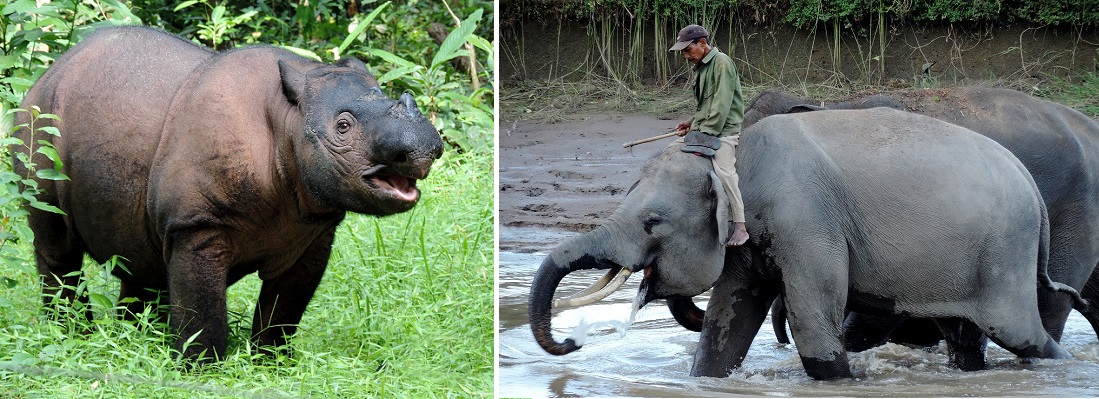Way Kambas launched as an ASEAN Heritage Park

One of the oldest reserves, and one of the remaining wetlands and lowland rainforests in Indonesia, Way Kambas National Park (WKNP) joins the network of ASEAN Heritage Parks, the best of the best protected areas in the ASEAN region. Located in Lampung Province, Southern Sumatra, Indonesia, the 1,300 sq km park, consists of a lowland forest ecosystem with freshwater swamp forest, grassland, and forest on the coast of Sumatra.
The official launch of WKNP will be held at the Elephant Conservation Center, WKNP, Bandar Lampung, Indonesia on 27 July 2016. The Assistant Director and Head of Environment Division,
Sustainable Development Directorate, ASEAN Socio-Cultural Community Department Saroj Srisai, and ASEAN Centre for Biodiversity Executive Director Roberto V. Oliva, are expected to attend this momentous event.
WKNP still has “the big five” or Mega Fauna of the Sumatran forest which include the Sumatran tiger, Sumatran elephant, Sumatran rhinoceros, Malayan Tapir and Sun bear. It is also home for Sumatran wildcats which include clouded leopard, fishing cat, flat headed cat, golden cat and leopard cat. It is home to Indonesia’s first Elephant Training Center, a center established to domesticate and train wild elephants translocated from other areas of Sumatra. The park has fifty (50) species of mammals and many of them are threatened.
“On behalf of the ASEAN Centre for Biodiversity, I would like to congratulate Indonesia for officially launching its fourth ASEAN Heritage Park. The other three are Gunung Leuser National Park, Kerinci Seblat National Park, and Lorentz National Park,” said Atty. Roberto V. Oliva, ACB Executive Director.
The ACB serves as the Secretariat of the ASEAN Heritage Parks Programme. Protected areas benefit from being declared as an AHP through capacity building activities for park managers and stakeholders in the form of various learning events, such as trainings and workshops. AHPs also receive technical assistance from the AHP Secretariat, through ACB in-house experts and network of partners. Being an AHP also increases its visibility as a prime ecotourism destination and model for effective protected area management through the Communication, Education, and Public Awareness (CEPA) Programme of ACB. Participation of and collaboration among AHP stakeholders in the implementation of research and development programmes and projects are also maximized and strengthened when a protected area is declared as an AHP. The AHP Programme also provides a regional platform for information sharing among AHPs by way of AHP Committee Meetings and AHP Conferences. Parks declared as AHPs are first in line for available funding through ACB programmes and projects.
